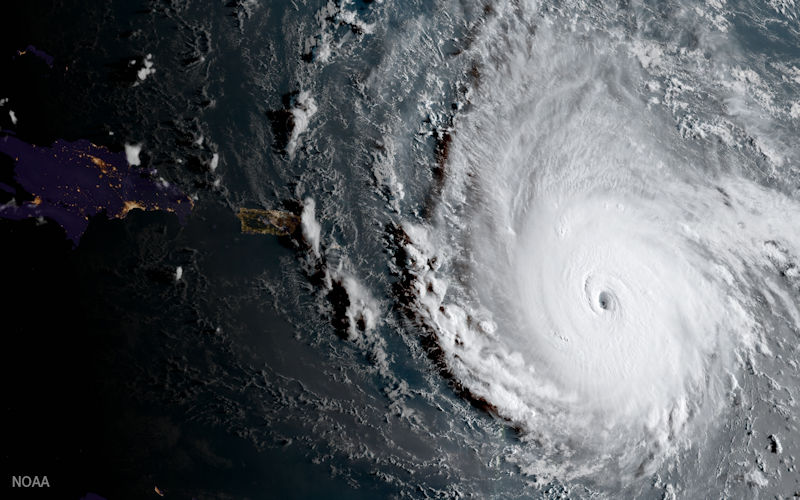Risk and Resilience in the coastal Caribbean
The impact of Hurricanes Irma and Maria and the risks faced by the coastal areas of the Caribbean

The costal caribbean is at exceptional risk from climate change. The Caribbean not only faces extreme weather increases – more and stronger storms leading to flooding and increased droughts – but also rising sea water levels and most of its population now lives in coastal areas and infrastructure, tourism and agriculture are disproportionately located on coastal zones. The severity of these risks were made clear in 2017 with Hurricanes Irma and Maria. Nearly 90 per cent of Barbuda’s infrastructure was destroyed and its 1,700 inhabitants had to be evacuated to neighbouring island, Antigua. And, more than six months after Hurricane Maria made landfall, many areas of Puerto Rico are still without electricity and few hospitals are operating again at their full capacity.
Various regional and international organisations, ranging from the Red Cross to the Caribbean Development Bank, have in recent years started to develop resilience building strategies to mitigate the risks from natural hazards and slow-onset climate change. How effective are they and what kind of resilience do they promote? Funded by an AHRC/GCRF network grant and led by Co-Director Henrice Altink,, scholars from different disciplines – history, art history, cultural and visual studies, literature, oceanography, geography, and environmental sciences – and practitioners in the field of Caribbean disaster risk management met at the University of York on 27 and 28 March to discuss this question and identify how interdisciplinary approaches could enhance resilience in the region.
Our discussions around the concept of resilience, which first emerged in academic discourse in the early 1970s in relation to socio-ecological systems and has since become more prevalent in the natural and social sciences. Participants set out various interdisciplinary approaches and how they would capture the main risks faced by the coastal Caribbean. Three strands of research emerged, to be taken forward by interdisciplinary team, along wit the Caribbean Disaster Emergency Management Agency, the regional branch of the Red Cross, and the Caribbean Natural Resource Institute. These proposals will be discussed in detail at a second meeting of the network in Jamaica in October 2018, which will be open to interested academics and external organisations from across the Caribbean.
Interested in participating? Get in touch!
Contact us
Interdisciplinary Global Development Centre
igdc@york.ac.uk
01904 323716
Department of Politics and International Relations, University of York, Heslington, York, YO10 5DD, UK
Twitter
Contact us
Interdisciplinary Global Development Centre
igdc@york.ac.uk
01904 323716
Department of Politics and International Relations, University of York, Heslington, York, YO10 5DD, UK
Twitter